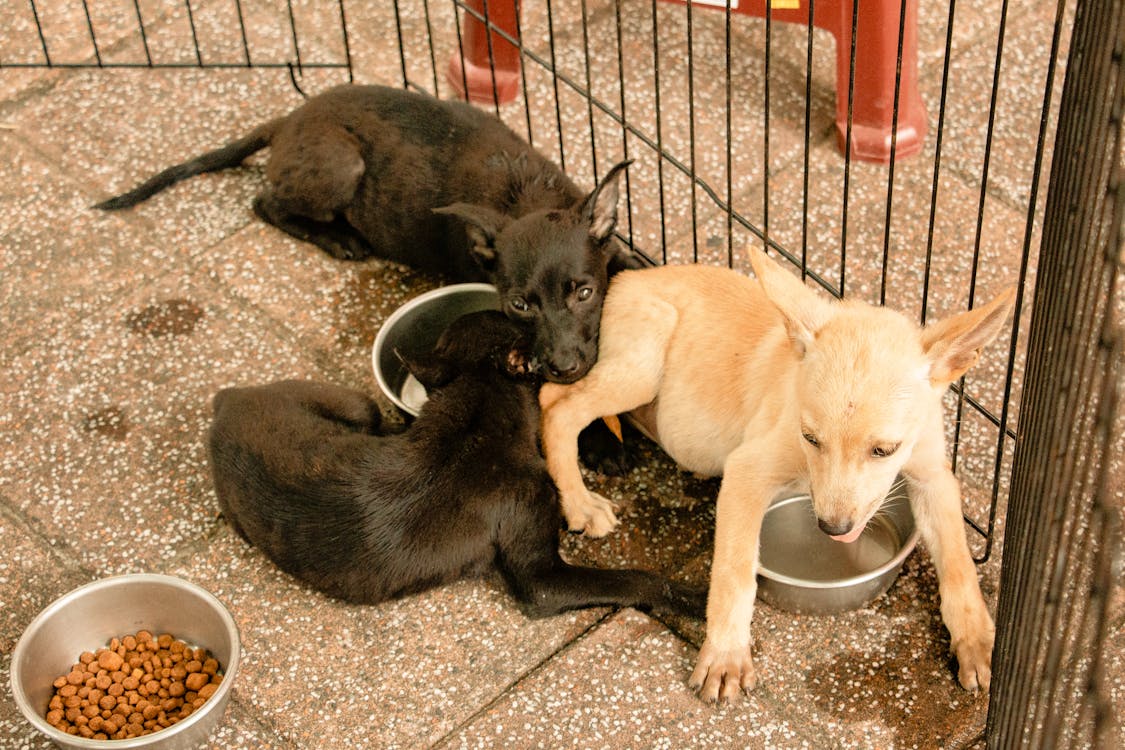As cherished members of our families, dogs deserve the best possible care and nutrition to lead healthy and fulfilling lives. However, just like humans, dogs can suffer from food allergies and sensitivities, which can affect their well-being and overall quality of life. Food allergies and sensitivities in dogs are more common than many pet owners realize, and understanding these conditions is crucial for providing them with the proper nutrition and avoiding potential health issues. In this article, we will explore the world of food allergies and sensitivities in dogs, the signs and symptoms to look out for, common triggers, and how to ensure proper nutrition for our beloved canine companions.
Food Allergies vs. Food Sensitivities: Understanding the Difference

Food allergies and food sensitivities are two different conditions that can cause adverse reactions in dogs, but they have distinct underlying mechanisms.
Food Allergies:
A food allergy is an immune-mediated response to certain proteins present in the diet. When a dog with a food allergy consumes the allergenic food, their immune system overreacts, producing antibodies to combat the perceived threat. This immune response leads to the release of histamines and other chemicals that cause allergy symptoms. The most common allergenic proteins for dogs are typically found in ingredients such as beef, chicken, dairy, soy, wheat, and eggs.
Food Sensitivities:

Food sensitivities, on the other hand, are not immune-mediated responses. Instead, they are typically characterized by gastrointestinal symptoms, such as vomiting, diarrhea, or excessive gas, when a dog consumes certain foods. The exact cause of food sensitivities is not fully understood, but it is believed to be related to the dog’s inability to properly digest or tolerate specific ingredients. Common food sensitivity triggers include grains, dairy, and certain proteins.
Signs and Symptoms of Food Allergies and Sensitivities in Dogs
Recognizing the signs and symptoms of food allergies and sensitivities is vital for identifying potential triggers and seeking appropriate veterinary care. The symptoms can manifest in various ways, and not all dogs will display the same signs. Some common signs of food allergies and sensitivities in dogs include:
Skin Irritations:

Itching, redness, and rashes are common symptoms of food allergies in dogs. They may excessively scratch, lick, or chew certain areas of their body, leading to hair loss and skin infections. Ear infections and recurring hot spots can also be indicative of food allergies.
Gastrointestinal Issues:
Food sensitivities often manifest as gastrointestinal problems. Dogs may experience vomiting, diarrhea, gas, or bloating after consuming trigger foods. Chronic digestive issues can lead to malnutrition and weight loss if not addressed promptly.
Ear Infections:

Food allergies can lead to inflammation and excessive wax production in the ears, making dogs more susceptible to ear infections. Frequent head shaking or pawing at the ears can indicate an underlying issue.
Chronic Itchy Paws:
Constant licking, chewing, or gnawing at the paws can be a sign of food allergies or sensitivities. Dogs may also develop swollen or inflamed paws as a result of their persistent scratching.
Respiratory Problems:

In some cases, food allergies can trigger respiratory symptoms, such as sneezing, coughing, or wheezing. These symptoms are less common but can occur in dogs with severe allergic reactions.
Diagnosing Food Allergies and Sensitivities
Diagnosing food allergies and sensitivities can be a complex process. Veterinarians will typically conduct a thorough medical history, physical examination, and dietary assessment to identify potential triggers. They may recommend an elimination diet trial, where the dog is fed a novel or hydrolyzed protein diet for a specific period, excluding all potential allergens. If symptoms improve during the trial, and then reappear when the original diet is reintroduced, it can confirm the presence of a food allergy or sensitivity.
In some cases, veterinarians may recommend blood tests or intradermal skin testing to further pinpoint specific allergens. However, it’s important to note that these tests are not always definitive, and the elimination diet trial remains the gold standard for diagnosing food allergies and sensitivities.
Ensuring Proper Nutrition for Dogs with Food Allergies and Sensitivities

Once a dog is diagnosed with a food allergy or sensitivity, ensuring proper nutrition becomes paramount. Eliminating the trigger ingredient from the dog’s diet is the most effective way to manage their condition and alleviate symptoms. This requires careful reading of ingredient labels and selecting commercial dog food or treats that are free from the offending allergen.
For dogs with multiple food allergies or sensitivities, a limited ingredient diet or a hypoallergenic prescription diet may be recommended. These specialized diets are formulated to exclude common allergens and provide all the necessary nutrients for optimal health.
Pet owners also have the option of preparing homemade meals for their dogs. However, it’s essential to consult with a veterinary nutritionist to create a balanced and nutritionally complete diet that meets all of the dog’s dietary requirements. Homemade diets that are not properly formulated may lead to nutritional imbalances and deficiencies, which can be detrimental to a dog’s health.
Importance of Avoiding Cross-Contamination
In addition to eliminating trigger ingredients from the dog’s diet, it’s crucial to avoid cross-contamination. Cross-contamination occurs when a dog with food allergies or sensitivities consumes small amounts of the allergen inadvertently. This can happen if the dog’s food comes into contact with surfaces, utensils, or treats that contain the allergen.
To prevent cross-contamination, pet owners should take the following precautions:

- Wash food bowls and utensils thoroughly after each use.
- Store the dog’s food separately from other pet foods to prevent mix-ups.
- Avoid giving the dog treats or table scraps that contain potential allergens.
- Inform family members, friends, and pet sitters about the dog’s dietary restrictions.
Understanding food allergies and sensitivities in dogs is crucial for providing them with proper nutrition and a higher quality of life. Recognizing the signs and symptoms of food allergies and sensitivities allows for early diagnosis and effective management. Once a dog is diagnosed, eliminating the trigger ingredient from their diet and avoiding cross-contamination becomes essential to alleviate symptoms and prevent further health issues. Working closely with a veterinarian to identify potential allergens and design a nutritionally appropriate diet ensures that our beloved canine companions receive the care and attention they need to thrive and remain healthy for years to come. By being proactive in managing their diet, we can show our love and dedication to our loyal and devoted furry friends, ensuring that they continue to bring joy and happiness to our lives as cherished members of our families.


